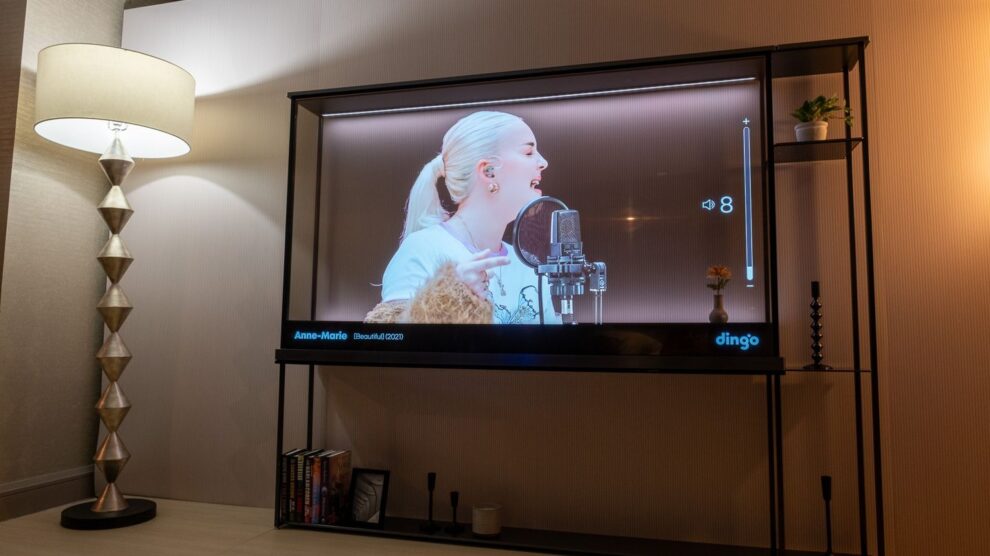The dream of screens blending seamlessly into their environment inches closer with LG’s unveiling of the astounding OLED T (for Transparent) – a television flaunting a transparent display allowing light to shine right through its pixels like glass.
This showstopping tech demonstration models a future where screens of any size organically coexist within spaces rather than awkwardly dominate them. But functionality stretches far beyond futuristic novelty for early adopters able to stomach its inevitably lofty price point.
Stunning Self-Emissive Tech Enabling See-Through Screens
OLED T‘s magical illusion leverages incredibly dense arrays of self-illuminating organic LEDs emitting their own colored light at the pixel level without needing an encompassing backlight like LCD screens require.
This permits electrifying individual LEDs while others remain fully transparent, allowing ambient environment shine right through the gaps for a “floating screen” effect merging reality with dynamic digital imagery.
Maintaining Picture Fidelity & Ambient Adaptivity
And LG intelligently compensates for OLED T’s innate transparency compromising contrast and color saturation with custom-engineered luminosity boosting algorithms and anti-reflection coatings.
Further assistance comes from light sensors intelligently adjusting brightness levels and gamma optimization based on ambient conditions, promising impressive picture refinement from every viewing angle.
Pushing Screen Boundaries into New Frontiers
Beyond immediately obvious decorative applications, banner-like vanishing screens enable innovative digital spatial experiences previously encumbered by opaque screens acting as barriers:
- Immersive Restaurant Menus & Tabletop Games: Display contextual animations at tables without blocking ambiance immersion
- Planning Hybrid Model/CGI Film Scenes: Composite real environments with digital assets for planning shoots
- Augmented Showrooms & Storefronts: Layer product data softly over physical items rather than harsh room-dominating screens
This paradigm shift promised by OLED T represents screens transcending mundane flat informational windows towards more harmonious environmental augmentation.
Balancing Pioneering Progress With Practical Limitations
However, frontier-pushing technology rarely manifests devoid of some crucial caveats…
Despite exceptional feats coaxing clarity through transparency, displaying blacks still proves particularly challenging without fully blocking light. This can manifest as slight haze noticeable when power is disabled, somewhat breaking illusory immersion.
Additionally, costs scaling next-generation production of handmade sample screens implies attention-grabbing concept devices like OLED T won’t grace average living rooms anytime soon.
Yet this practical obscurity also births a promising niche – especially alluring for commercial AR experimentation by enterprise sectors unconstrained by consumer price sensitivities.
Paving Inroads to Novel Display Paradigms
Ultimately displays like OLED T make small steps toward analogous paradigm shifts in history – glass skyscraper architecture removing walls for airy open floorplans or LCD panels graduating CRTs towards minimalist form factors.
The realized future of digital screens fading politely into background environments remains uncertain. But early fascinations like LG’s aesthetic spectacle help acclimate perceptions toward that eventuality through thoughtful acclimation today.
And that future certainly appears bright!
Does LG’s OLED T concept dissolve your skepticism toward ubiquitous transparent screens or remain impractically futuristic? What possibilities come to mind interfacing displays and physical spaces? Share your thoughts below!










Add Comment